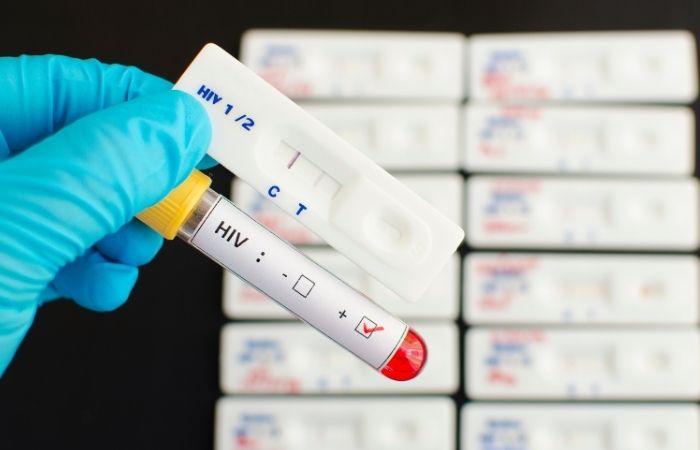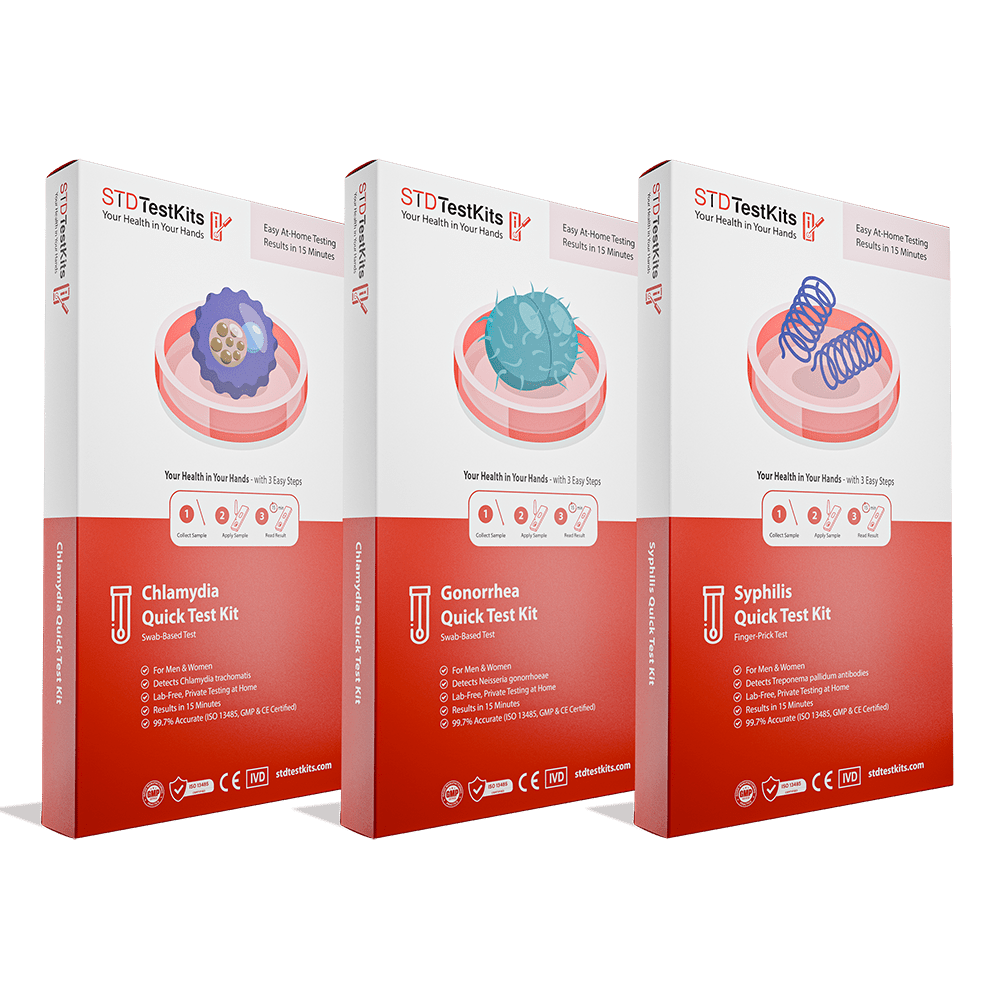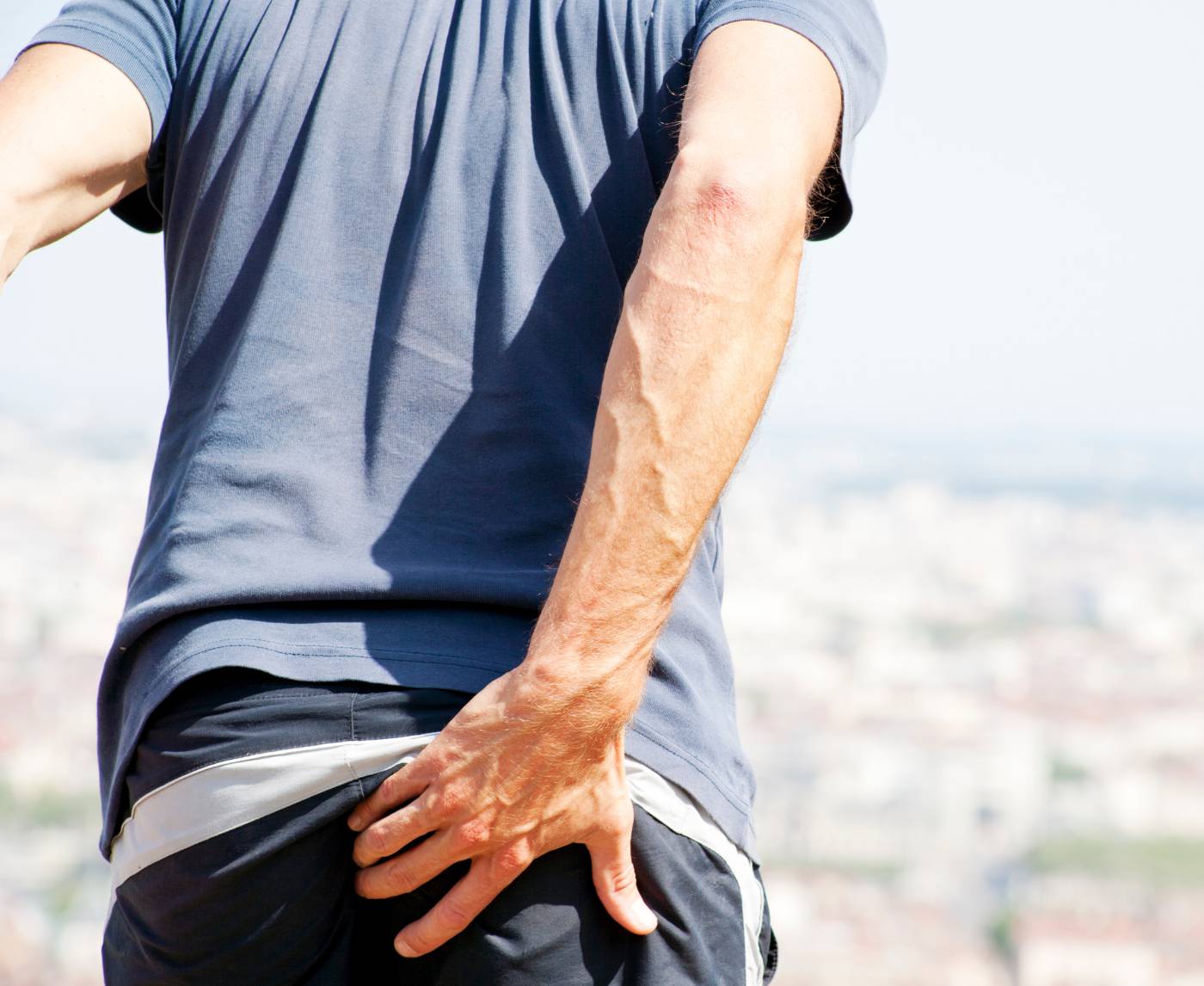Anal Itching After Sex? Here’s What It Could Mean
Quick Answer: Festival hookups often involve unprotected oral, vaginal, or anal sex, plus drug use and dehydration. This combo makes STDs like gonorrhea, herpes, chlamydia, and trichomoniasis common post-festival surprises. Some show symptoms in days, others stay silent for weeks. Testing is key.
“It Was Just a Festival Thing”, Until It Wasn’t
DeAndre, 22, had the time of his life at a three-day music festival. He met someone on day two, things moved fast, and they hooked up behind the food trucks. No condom. No conversation about testing. “It felt like a dream,” he said, until a week later, when he started feeling a strange burn when he peed. That “festival thing” turned out to be chlamydia.
These stories are way more common than anyone admits. Festivals combine all the ingredients for STD transmission: new people, altered judgment, dehydration, limited access to clean gear or showers, and a whole lot of spontaneous sex. Add in long hours, music-fueled euphoria, and a few edibles or Molly, and condoms tend to get left behind.
And while some festivalgoers will brush it off as “part of the vibe,” your body doesn’t care. If you had any kind of unprotected oral, genital, or anal contact, even once, you may have been exposed to something you didn’t plan on bringing home.

People are also reading: Think It’s Just a Skin Thing? Syphilis Rashes Are Trickier Than You Think
Let’s Be Real: These Are the STDs That Thrive at Festivals
Different infections spread differently, but certain ones seem to love festivals as much as we do. Here are the big four to look out for after your weekend escape:
- Gonorrhea – Can infect the genitals, throat, or rectum. Symptoms include burning, discharge, or sore throat, but many have no symptoms at all.
- Chlamydia – One of the most common post-hookup infections. Usually silent, especially in people with vaginas.
- Herpes (HSV-1 or HSV-2) – Passed through skin-to-skin contact, even without full sex. Can be oral or genital. Often shows up as small blisters or irritation.
- Trichomoniasis – A lesser-known but very common infection. Often causes discharge or itching, but it’s frequently missed.
Also on the radar? Syphilis, HPV, and hepatitis A/B. And while HIV risk is lower from one-off exposures, it’s not zero, especially if blood, open cuts, or needle-sharing were involved during drug use.
Festival Flu… or Something Else?
Lots of people feel off after a weekend of partying, headache, sore throat, body aches. It’s easy to blame the hangover, dehydration, or dust storms. But sometimes those symptoms aren’t from the rave, they’re from your immune system responding to a new infection.
Here’s where it gets confusing: STDs like gonorrhea, herpes, or even syphilis can show up like a “festival flu.” You might feel rundown, sore, or notice swollen glands. If you had a hookup and these symptoms show up 2–10 days later, it’s worth questioning if it’s more than just partying too hard.
And oral sex? It’s not risk-free. Gonorrhea and chlamydia can infect the throat. If you wake up with a sore throat and no other explanation, especially if you received or gave oral, it could be bacterial, not viral.
How Fast Do STDs Show Up After a Festival?
Timing matters. You can’t just roll into urgent care Monday morning and expect a full readout. Some STDs take days, or even weeks, to show up in your system. Testing too early can give you a false sense of security.
Table 1. Common STD incubation periods. Early testing is tempting, but follow-up tests give more accurate results.
If you’re feeling off but it’s only been a day or two, you’re probably too early for a conclusive test. That said, if you’re symptomatic, discharge, burning, sores, test now and again in two weeks if your provider recommends it. No symptoms? Mark your calendar for 10–14 days out.
When “Festival Rash” Is Actually Something Else
Emilia, 19, thought her thighs were irritated from walking all day in denim shorts. “It felt like chafing, maybe a heat rash,” she said. But a few days later, she noticed tiny blisters and a stinging sensation while peeing. After a clinic visit, she learned it wasn’t a skin reaction, it was genital herpes.
Herpes is often mistaken for sweat rash, ingrown hairs, or allergic irritation. But at festivals, where you’re sharing showers, sleeping on the ground, wearing synthetic fabrics, and not always freshly cleaned, it’s easy to brush it off as “just festival stuff.”
Same goes for oral herpes. If you kissed someone and now have a tingle or blister on your lip, it might not be from your water bottle. HSV-1 is incredibly common and spreads easily when people are drinking, kissing, or sharing vapes. Yes, that’s a thing too.
Oral STDs from Festival Hookups? Yep, That Happens Too
Here’s what almost no one realizes: oral sex can spread STDs just as easily as penetrative sex. If you went down on someone, or received, without a barrier, you could’ve been exposed to:
- Gonorrhea in the throat (often symptomless or mild sore throat)
- Chlamydia (rare orally, but still possible)
- HSV-1 or HSV-2 (cold sores or genital herpes, depending on location)
- Syphilis (painless oral sores can look like a canker or be missed entirely)
If you’re waking up with a sore throat that’s not responding to lozenges or you’ve got swollen lymph nodes after the festival, consider requesting a throat swab. Standard STD panels don’t test your mouth unless you ask.
“I Just Wanted to Feel Free”, Then the Regret Hit
Sam, 21, said the hookup “wasn’t planned.” “We’d been vibing all day, passing drinks, sharing a blanket during sunset. It felt right. But there was no condom, and I didn’t even ask their name.” Two weeks later, Sam noticed discharge and itching and got diagnosed with trichomoniasis.
“I wasn’t even sure what ‘trich’ was. I thought only the big ones, HIV, herpes, whatever, mattered. I was wrong.”
These stories aren’t rare. People go to festivals to feel untethered, spontaneous, in the moment. And that’s beautiful, until you’re stuck Googling symptoms while sitting in your dorm bathroom, trying to decide whether to go to class or urgent care.
If you even think you might’ve caught something, don’t wait. Test now, test again if needed, and get treated early.
Not sure where to start? This at-home test kit covers the most common infections from oral and genital contact. You don’t need to leave your house, and you don’t need to explain anything to anyone.
How to Avoid Catching an STD Without Killing the Vibe
You don’t have to swear off sex or skip the afterparty to stay safe. Festival hookups happen, and they can still be hot, spontaneous, and safer with just a few smart moves.
- Pack condoms and keep them accessible, not buried under five protein bars and a tangle of glitter bras.
- Use protection for oral too. Dental dams and flavored condoms exist for a reason. Bring them. Use them.
- Don’t assume “clean” means tested. Most people don’t test regularly. Ask anyway. Normalize it.
- Watch out for impaired decision-making. Substances lower inhibitions and increase risk. You know this. Plan around it.
- Shower or clean up before and after. Wipes aren’t just for your face. They help reduce infection risk from sweat, friction, and bacteria.
And if you’re not into hookups but still want to vibe? That’s valid too. There’s zero shame in saying no or changing your mind mid-makeout. Consent is a full-body “yes,” not a hazy maybe at 3AM.
Silent STDs: What You Don’t Feel Can Still Spread
The cruel trick of many STDs is silence. Chlamydia and trichomoniasis can sit in your body without a single symptom, especially in people with vaginas. Gonorrhea might only give you a sore throat. Herpes can show up months later, and you’ll never know where it came from.
And here’s the kicker: even if you don’t feel it, you can still pass it. That’s why testing matters. Not because you’re “dirty” or irresponsible, but because your body doesn’t send alerts for everything. It just keeps moving, until you check in.
Think of testing like hydration. After a festival, you rehydrate. You clean your gear. You catch up on sleep. You test. It’s just part of the ritual.
“I’m Queer, and No One Warned Me About This Stuff”
Leo, 20, identifies as nonbinary and had their first hookup at a festival. “It was with another nonbinary person in the same tent section. We used lube but no barrier. I felt safe because it didn’t feel like ‘real sex,’” they said. But days later, Leo developed a throat infection and later tested positive for oral gonorrhea.
“There’s no sex ed for us. I didn’t even know STDs could live in your throat. I felt stupid, but I wasn’t. I just didn’t know.”
STDs don’t discriminate by gender, sexuality, or vibe. If there are fluids, skin contact, or mucous membranes involved, there’s risk. Queer, straight, experimenting, whatever, you deserve access to prevention info, testing, and treatment that doesn’t shame you.
And no, your first time doesn’t have to come with a clinic trip. But if it does? You’re still valid. Testing doesn’t make you bad. It makes you aware.
Festivals Are Freedom, But They Don’t Cancel Biology
You can dance all night, lose yourself in sound, kiss strangers under lasers, and still care about your health. These things aren’t mutually exclusive. Being sexually active doesn’t make you careless. Getting tested doesn’t make you paranoid. It makes you in control.
Think you might’ve caught something? Don't spiral. Order a discreet test kit, swab your throat or genitals at home, and know for sure. Peace of mind hits harder than any bass drop.
You’re not alone, you’re not dirty, and you’re definitely not the first person to Google “burning after camping sex.”

People are also reading: What Syphilis Looks Like in Newborns (And Why It’s Often Missed)
FAQs
1. Can you really get an STD from just one festival hookup?
Oh yeah. That one blurry night under the lasers? That’s all it takes. Most STDs don’t need a second round, they just need one unprotected encounter to move in. Doesn’t matter if it was oral, vaginal, or "just a quickie in a tent."
2. I used protection. I’m good, right?
Safer? For sure. Totally in the clear? Not necessarily. Condoms and barriers lower risk big-time, but not to zero. Skin-to-skin STDs like herpes or HPV can still sneak through uncovered areas. And let’s be honest, if things got rushed, that condom might not have made it on in time.
3. Wait, oral sex can give you an STD?
Yep. That’s the plot twist nobody warned us about in health class. Gonorrhea, chlamydia, herpes, and syphilis all have no problem setting up shop in your throat. And they don’t always cause symptoms. So that post-festival sore throat? Might not be allergies or screaming at the bass drop.
4. 5How soon should I get tested after the hookup?
Depends on what you’re testing for. Some STDs show up in 3–5 days, others need 2+ weeks to be detectable. If something’s already feeling off, test now. If not, aim for 7–14 days, and maybe again later for peace of mind.
5. What if I don’t feel sick, am I fine?
Not necessarily. Some of the most common STDs, like chlamydia and trich, don’t make a peep. No pain, no discharge, no clue. That’s how they keep spreading. So don’t wait for fireworks. If you had unprotected fun, get checked.
6. I’m too embarrassed to go to a clinic. What do I do?
Totally fair. Clinics can feel intimidating, especially if you’re not out, not sure, or just hate waiting rooms. That’s where at-home test kits come in. Swab in private, send it off, done. You get results without the eye contact.
7. What if I test positive?
Deep breath. You’re not gross. You’re not doomed. You just picked up a bacterial hitchhiker, and it can probably be treated with a round of antibiotics. Next step? Take the meds, pause the hookups, and if you can, give a heads-up to your recent partners. It’s not drama, it’s responsibility.
8. Is herpes the end of my sex life?
Nope. It’s common, manageable, and super stigmatized, but it doesn’t make you less sexy or lovable. Plenty of people live normal, amazing sex lives with herpes. You just learn how to manage outbreaks, talk about it openly, and maybe add meds to your routine if needed.
9. Should I tell my hookup they might’ve given me something?
If you can, yes. It’s awkward. It’s brave. But honestly? It’s also kind. A simple “Hey, I tested positive after the festival. Just wanted you to know so you can check too” goes a long way. No need for blame. Just facts and care.
10. How do I stay safer next time?
Pack condoms and keep them on you, not buried in your tent. Bring lube, too (your body will thank you). Don’t skip protection for oral. And maybe check out a test kit before or after the event, just to know your status. The goal isn’t to kill the vibe, it’s to keep it going without uninvited bacteria crashing the afterparty.
You Had a Good Time, Now Take Care of Yourself
Music festivals are built for escape, freedom, fantasy, wild moments, all of it. But biology doesn’t take a weekend off. If you hooked up, shared fluids, skipped protection, or just aren’t sure what went down... don’t wait for symptoms.
Get tested. Order an at-home STD test that covers oral, vaginal, and rectal exposure. No one has to know. You don’t have to explain anything. Just get your results, get treated if needed, and keep living boldly.
You deserve clarity. You deserve safety. You deserve to enjoy the beat without wondering what else came home with you.
Sources
2. CDC — STI Prevention & Transmission
3. CDC — STI and HIV Infection Risk Assessment Guidelines
4. CDC — Getting Tested for STIs
5. A Network Analysis of Sexually Transmitted Diseases and Partnership Patterns — PMC
About the Author
Dr. F. David, MD is a board-certified infectious disease specialist with two decades of experience in STD care and sexual wellness. Known for his no-shame, trauma-informed approach, he helps patients navigate testing, treatment, and real-world risk with clarity and compassion.
Reviewed by: Nina Toussaint, RN | Last medically reviewed: October 2025






